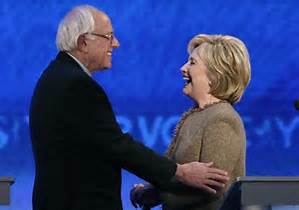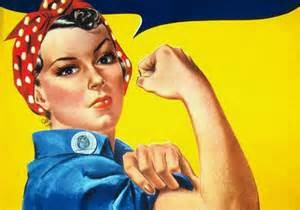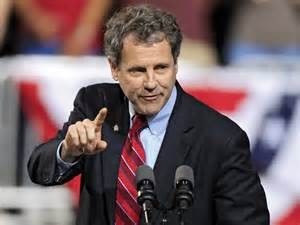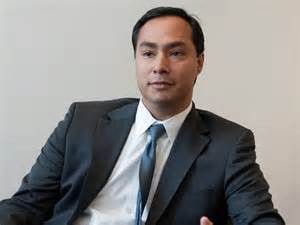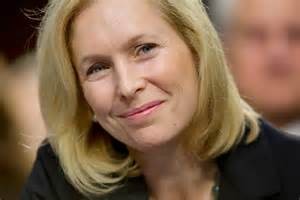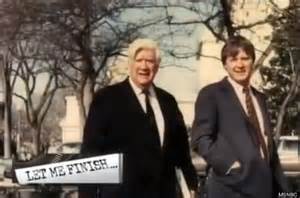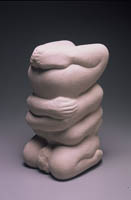Completing Two Imperfect Candidates
Democrats Have a Deep Enough Bench to Cover Some Blemishes
A year ago, Team Blue couldn’t have wished upon a star that its loyal opposition seemed hell-bent on such self-destructive oblivion. Donald Trump or Ted Cruz? What a gift! Bring ’em on!
The Republicans might yet get their act together. But, as of right now, it sure looks good in the blue seats.
But no Democrat I know anticipates a cakewalk this November. Call it seasoned skepticism. Both candidates each have their own unique problems of electability. It ain’t over ’til it’s over.
Luckily, there are several Democratic luminaries out there who seem tailor-made for a Clinton or Sanders ticket. Yes, yes, we all know that the second banana is not the decisive factor when the votes are counted. But this year, with conventional wisdom turned on its head, rules are made to be broken.
The year of the Insurgent
The insurgency aspect of the 2016 race has been well-chronicled and won’t be regurgitated here. Nor will I get into the horserace between Hillary and Bernie. The math clearly favors Clinton (she needs to win only one-third of the delegates in the remaining primaries and caucuses), but there are no sure bets in American politics. Let’s briefly review the candidates’ electoral flaws and then find a remedy in a running mate.
Bernie Sanders, at first blush, seems the unlikeliest candidate to hold together the Obama coalition–minorities, women (especially unmarried women), young people, the college-educated–that captured the White House in 2008 and 2012. Yes, Sanders does well with millennials. But he needs a running mate who would both secure some key part of that winning coalition and, at the same time, deliver a more moderate message to run counterpoint to Sanders’ leftist roar.
The first woman president. So how could Hillary be struggling with the women’s vote? Many women I’ve talked to say Hillary Clinton broke the proverbial glass ceiling in 2008 when she was almost nominated. Life isn’t fair. As it stands, HRC is the establishment candidate in the year of insurgency. Ross Barkan of The Observer summarizes well:
Ms. Clinton is a legacy candidate only six years Mr. Sanders junior, running in a volatile climate practically engineered to reject such an endeavor.
Obviously, Clinton needs to be matched to a fresh face. Her running mate should have uncompromising liberal credentials that have never been questioned, much less doubted.
Waiting for That Phone Call
I’ve selected three prospective vice presidential candidates among dozens of reasonable choices. Of course I don’t have access to the background checks that may disqualify one or all of them.
Sherrod Brown
Senator Brown won two tough Senatorial elections in a battleground state. In 2012, Brown was the primary target of conservative groups, including Karl Rove’s, which all told spent $40 million to defeat him. Including his seven terms as a Congressman, four as a state representative and eight years as Ohio’s Secretary of State, Brown has lost exactly one election in his career.
Brown’s voting record is unfailing liberal, earning him a 100% rating from the Americans for Democratic Action (ADA). As a liberal from a coal-producing state, he has somehow thread that needle with minimal controversy. He can be “rhetorically combative,” according to the National Journal. He is known as a fighter for the working man whose style is cheerful and informal, as his trademark sneakers and tousled hair can attest.
I say Sherrod Brown is HRC’s best choice for second spot on her ticket. His liberal bonafides are unchallenged. His state, Ohio, is an electoral college prize. His penchant for rhetorical battle are sound bites waiting to happen, while Clinton struggles to keep a lid on her talking points.
Sherrod Brown is the guy you’d like to have a beer with. He’ll make Hillary lighten up.
Joaquin Castro
Texas won’t turn blue anytime soon. Still, Joaquin Castro, the second-term Congressman representing San Antonio, TX, can be matched with either Clinton or Sanders. Yes, he’s young (41-years-old) and a bit green, but then again, Barack Obama was just six years older when elected president. In fact, their youthful careers are very similar.
Castro’s got an interesting story. His mother Rosie was a prominent Latina activist back in the day. His twin brother Julian was elected mayor of San Antonio before being appointed secretary of Housing and Urban Development, a cabinet position. The twins attended Stanford University where they both earned degrees in political science. Then it was on to Harvard Law School for both.
It was Julian who gave the keynote address to the 2012 Democratic National Convention. Last year, Julian followed his brother’s lead by endorsing Hillary Clinton.
Whether it is Joaquin or Julian, the electoral benefits for both Clinton and Sanders are as plain as day. The Castro brothers–articulate, dynamic loyal Democrats–are the future.
Kirsten Gillibrand
If Bernie Sanders somehow get the nomination (and Liz Warren keeps her promise to stay out), he could do a lot worse than Senator Gillibrand. A practicing attorney from a politically prominent family of both Democrats and Republicans, Gillibrand was appointed and then elected to HRC’s old New York Senate seat (she won, 72-26 in 2012). She had served one term in the US House.
Gillibrand is a mostly reliable Democratic vote (she’s ranked the 13th most liberal) who focuses on certain issues that have won her praise from Senate leaders and constituents alike. She helped shepherd the bipartisan reauthorization of the Child Nutrition Act. More visibly, Gillibrand was among the first who called for a repeal of the “don’t ask, don’t tell” policy that barred openly gay persons from military service. She lobbied congressional colleagues, pushed for hearings and even set up a website featuring the stories of gay and lesbian veterans.
Bernie Sanders would clearly benefit by selecting a woman who is not known as a liberal firebrand. And another thing: Given Sanders’ age (74), it is well within the realm of possibility that Bernie’s presidency could be interrupted by health issues.
Voters, especially woman voters, could be looking at a genuine breaking of the glass ceiling…even if it’s through the back door.
